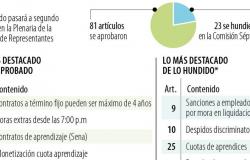None of the murders of Al Scarface Capone received punishment, and Elliot Ness was in charge of charging him with the crime of tax evasion – derived from illicit gambling – for which he received a sentence of 11 years in prison and a fine of $50,000.
***
In Cuba, the citizen’s contribution to the support of public expenses is a duty, which among other forms includes the payment of taxes, which results in the State having greater financial resources to achieve greater social justice and satisfy the needs of citizens.
Why is it necessary to pay taxes? Well, because they make it possible to finance common needs, that is, they are the “price” paid for public goods and services. Furthermore, they allow for greater equality of income and wealth among citizens; This is what is known as the redistributive function of taxes.
Law 113 of 2012, On the tax system, establishes the taxes, rules and general procedures on which the tax system is based, based on the principles of generality and equity of the tax burden, in correspondence with the economic capacity of the obligated subjects. to its fulfillment.
It determines as subjects of the tax system and, therefore, obliged to pay taxes, Cuban and foreign natural and legal persons, in accordance with the provisions for each tax.
Likewise, it considers income obtained in the national territory, all those generated by events of a legal or economic nature developed in the Republic of Cuba, regardless of the nationality, domicile or residence of the people involved in such operations and the place of celebration of those, as well as those coming from assets located or rights used economically in the national territory.
The aforementioned law divides taxes into taxes, rates and contributions, and establishes that tax infractions are considered those generated by non-compliance with the payment obligation, and those derived from non-compliance with formal duties established in the legal provisions and complementary regulations. , setting the sanctions applicable in each case.
From the above, it provides that, when the infractions committed could constitute the crime of tax evasion, the National Tax Administration Office (ONAT) exhausts the procedures established for the collection of the determined debt, without prejudice to the corresponding criminal complaint, always that the intention to use tax evasion mechanisms for taxes and other contributions established by legislation is manifested in the infraction committed.
TAX EVASION IN THE CRIMINAL CODE
At this very moment you may find yourself with a doubt: how is it possible to determine that the violation constitutes the crime of tax evasion? Well first, it is necessary to see how the Penal Code defines it.
Article 319.1 punishes anyone who evades the obligation to pay a tax, fee or tax contribution, or refuses to pay it in whole or in part, with imprisonment of one to three years or a fine of 300 to 1,000 installments, or both. , provided that the resolution or act of the tax administration is firm, by means of which the debtor was constituted and the amount of the tax that must be paid was determined, that said payment had been required according to the established procedures and that the term to satisfy the obligation.
The penalty is aggravated by between two and five years of deprivation of liberty or a fine of 500 to 1,000 quotas, or both, if as a consequence of these events serious damage is caused to the State Budget.
You may still not distinguish the difference between a mere administrative infraction and a criminal act. In the latter, the subject’s conduct is deliberate and intentional (sometimes repetitive) with the stated objective of defrauding, omitting income through violation of formal duties.
To cite a real example: a Cuban citizen who has authorized a work project, which includes a restaurant, cafeteria and retail and wholesale trade of food products, imported more than $100,000; However, he declared his average monthly income to be 12,000 pesos (they represent 600 pesos a day), can you believe it?
Based on the investigation carried out by the onat, it was determined that he had stopped paying 35,579,000 pesos; Furthermore, this taxpayer declared that he did not have hired workers, which also did not correspond to reality. This was only in one year (2023), because in 2024, due to the high imports made, he had not made contributions to the State Budget, which were determined in the amount of 15,700,000 pesos.
But the subjects do not always evade the treasury in this way, some do attend to “comply” with their obligations, but do not honestly declare the total of their income, or use deceptive mechanisms to hide them.
Have you heard of “front men”? For them, the criminal law also has punishment, which, in article 320.1, punishes anyone who directly or through another person falsifies, hides, or alters information with significance with deprivation of liberty between two and five years or a fine of 500 to 1,000 quotas, or both. tax or use any other trick, with the intention of avoiding or impeding the actual determination of the debt, or evading the payment of taxes, fees, contributions of a tax nature. In the event that this causes serious damage to the State Budget, these sanctions increase their range between three to eight years of deprivation of liberty.
In Cuba, is there any regulation for those who pay their debt when the criminal process is already in process? I can say yes. In correspondence with the humanistic character of our laws and with the fact that one of the objectives of the Penal Code is to contribute to forming in all citizens the awareness of respect for socialist legality, of the adequate exercise of their rights and the fulfillment of their duties, of the order and discipline.
Article 323.2 establishes that, if the person responsible satisfies the tax debt before concluding the oral trial, the court may, in accordance with the circumstances of the event and his personal conditions, archive the proceedings (provided that no means, methods or procedures have been used). fraudulent to evade tax liability in whole or in part, or to prevent, hinder, delay or obstruct the collection efforts of the onat) or lower the minimum and maximum limits of the penalty.
This crime provides for the possibility of imposing the accessory sanction of confiscation of property, which consists of dispossessing the sanctioned person of his property, totally or partially, transferring it to the State, not including the property or objects that are essential to satisfy the vital needs of the person. sanctioned or of the relatives in his shelter.
It can also be committed by legal entities, for which penalties are reserved that compromise the very existence of the entity, such as temporary closure, intervention and temporary or permanent prohibition to carry out a certain activity or business.
I conclude by assuring you that there are legal instruments in Cuba so that no act of tax evasion goes unpunished and, as in the case of Al Scarface Capone, its commissioners will receive severe sanctions.






